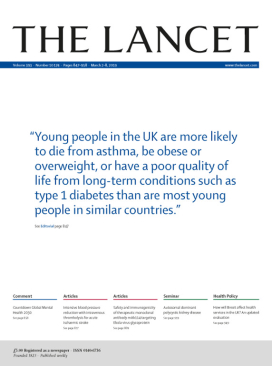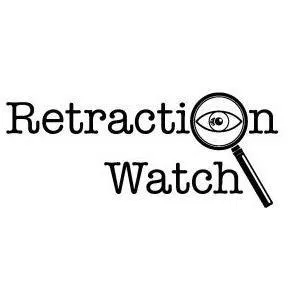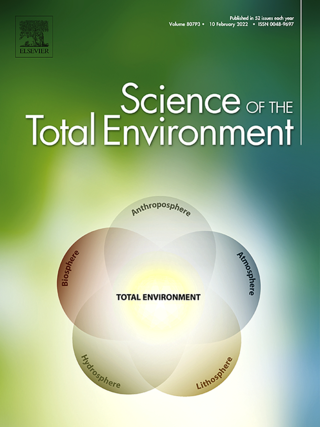Related Research Articles
Scientific misconduct is the violation of the standard codes of scholarly conduct and ethical behavior in the publication of professional scientific research. A Lancet review on Handling of Scientific Misconduct in Scandinavian countries provides the following sample definitions, reproduced in The COPE report 1999:

The Lancet is a weekly peer-reviewed general medical journal and one of the oldest of its kind. It is also the world's highest-impact academic journal. It was founded in England in 1823.
In academic publishing, a retraction is the action by which a published paper in an academic journal is removed from the journal.

Virology Journal is an open-access peer-reviewed medical journal published by BioMed Central. It publishes research related to viruses and the prevention of viral infection. The journal was established in 2004 with Robert Garry as founding editor-in-chief and has been edited by Linfa Wang since 2012. It aims to cover rapid communications amongst virologists.

Carlo Maria Croce is an Italian-American professor of medicine at Ohio State University, specializing in oncology and the molecular mechanisms underlying cancer. Croce and his research have attracted public attention because of multiple allegations of scientific misconduct.
Naoki Mori is a Japanese virologist who is a professor at the University of the Ryukyus in Okinawa Prefecture, Japan. He has received numerous awards for his research on human T-cell leukemia virus type 1 (HTLV-1), a retrovirus which causes adult T-cell leukemia.
Scientific Reports is a peer-reviewed open-access scientific mega journal published by Nature Portfolio, covering all areas of the natural sciences. The journal was established in 2011. The journal states that their aim is to assess solely the scientific validity of a submitted paper, rather than its perceived importance, significance, or impact.

Retraction Watch is a blog that reports on retractions of scientific papers and on related topics. The blog was launched in August 2010 and is produced by science writers Ivan Oransky and Adam Marcus. Its parent organization is the Center for Scientific Integrity.
Dipak Kumar Das was the director of the Cardiovascular Research Center at the University of Connecticut Health Center in Farmington and is known for research fraud. His work centered on the beneficial properties of resveratrol, which is found in red wine, but over twenty of his research papers have been since retracted.
Silvia Bulfone-Paus is an Italian immunologist, who gained widespread attention in mainstream media for rampant scientific misconduct.
Frontiers Media SA is a publisher of peer-reviewed, open access, scientific journals currently active in science, technology, and medicine. It was founded in 2007 by Kamila and Henry Markram, and has since expanded to other academic fields. Frontiers is based in Lausanne, Switzerland, with other offices in London, Madrid, Seattle and Brussels. In 2022, Frontiers employed more than 1,400 people, across 14 countries. All Frontiers journals are published under a Creative Commons Attribution License.
Bharat B. Aggarwal is an Indian-American biochemist. His research has been in the areas of cytokines, the role of inflammation in cancer, and the anti-cancer effects of spices and herbs, particularly curcumin. He was a professor in the Department of Clinical Immunology, Bioimmunotherapy, and Experimental Therapeutics at University of Texas MD Anderson Cancer Center in Houston, Texas.
Olivier Voinnet is a French biologist and professor of RNA biology at the ETH Zurich. Voinnet obtained his PhD in 2001 in England in the group of David Baulcombe and later obtained a position as an independent group leader at the CNRS in Strasbourg where he was promoted to Directeur de Recherche in 2005. In 2010, he moved to ETH Zurich where he was appointed a full professor of RNA Biology. Voinnet's published articles have been subject to allegations of image manipulation, leading to multiple corrections and retractions: as of 2022 nine of Voinnet's scientific articles have been retracted, five others have received an expression of concern, and 25 others have been corrected.

Science of the Total Environment is a weekly international peer-reviewed scientific journal covering environmental science. It was established in 1972 and is published by Elsevier. The editors-in-chief are Damià Barceló, Jay Gan and Philip Hopke. According to the Journal Citation Reports, the journal has a 2021 impact factor of 10.753.
Body Image is a quarterly peer-reviewed academic journal covering the study of body image as it pertains to psychology and other disciplines. It was established in 2004 and is published by Elsevier. The editor-in-chief is Tracy L. Tylka.
The International Journal of Occupational and Environmental Health was a quarterly peer-reviewed public health journal with a focus on occupational and environmental health. It was established in 1995 and was published by Routledge. The last editor-in-chief was Andrew Maier.
The Indian Journal of Medical Ethics is a quarterly peer-reviewed academic journal covering medical ethics and bioethics. It was established in 1993 by the Forum for Medical Ethics Society, an activist group campaigning to reform the Maharashtra Medical Council. The journal was originally entitled Medical Ethics, and its first issue was published in August 1993. It obtained its current title in January 2004. The editor-in-chief is Amar Jesani. The online version of the journal is open-access, the printed version is subscription-based; there are no article processing charges.
Sophie Jamal is a Canadian endocrinologist and former osteoporosis researcher who was at the centre of a scientific misconduct case in the mid-to-late 2010s. Jamal published a high-profile paper suggesting that the heart medication nitroglycerin was a treatment for osteoporosis, and was later demonstrated to have misrepresented her results. She received a lifetime ban from receiving funding from the Canadian Institutes of Health Research and was named directly in their disclosure report, becoming the first person mentioned by name by the institute for scientific misconduct. Jamal was later stripped of her medical license for two years, regaining it in a controversial 3–2 decision.
Cassava Sciences is an American pharmaceutical company based in Austin, Texas. The company was founded in 1998 by chief executive officer and president Remi Barbier as Pain Therapeutics, Inc., changing its name in 2019.
References
- ↑ Ed Yong, Heidi Ledford & Richard Van Noorden, Research ethics: 3 ways to blow the whistle, Nature (November 27, 2013).
- ↑ James Glanz & Agustin Armendariz, Years of Ethics Charges, but Star Cancer Researcher Gets a Pass, New York Times (March 8, 2017).
- 1 2 Kerry Grens, What to do about "Clare Francis", The Scientist (September 14, 2013)
- 1 2 Ivan Oransky, Clare Francis scores a bullseye: Journal of Cell Biology paper retracted for image manipulation, Retraction Watch (January 22, 2013).
- ↑ Elsevier Corporate Commentary. It's not that Clare Francis is a pseudonym; it's that the pseudonym is Clare Francis
- ↑ Adam Marcus & Ivan Oransky, Who Are You? Editors should stop ignoring anonymous whistle-blowers, Lab Times, 7-2011, p. 39.